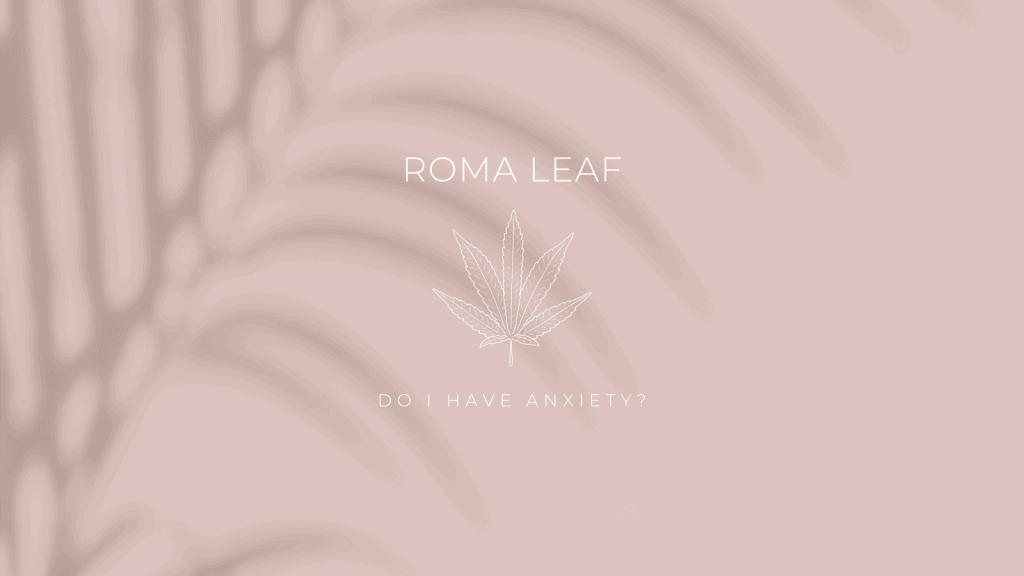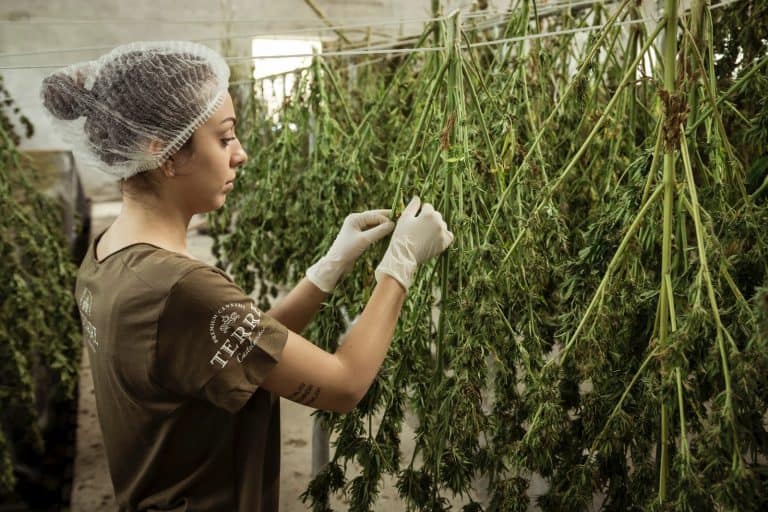
Anxiety has become a staple condition in the workplace, at school, and in homes. Due to the increase of awareness for mental health, the term has become a household term for describing feelings of worry and uncomfortableness. Anxiety is normal, and it happens to everyone, but it becomes a problem when it runs your life.
The condition has a range of severtities but afflicts a large population of people. The basic definition of anxiety is a feeling of worry or nervousness that is usually brought on by an event. One might be anxious before a first date or an important meeting. Short-term anxiety increases your heart rate and breathing and focuses blood flow to the brain, but constant stress can have some long-term effects on your mind and body.
Some attributors can be stress, side effects from medication, and even genetics. Other times anxiety is onset by natural changes in the body or a traumatic event. Sometimes anxiety can seem like it came out of nowhere. This is the case for many women.
Due to the high amount of hormonal changes, women are more likely to develop anxiety, or a variation of it. Women in their 30’s and 40’s have reportedly developed anxiety with no previous indicators, simply due to hormones.

Many believe that anxiety is caused by a chemical imbalance or disruption to the natural hormones and electrical signals within the brain. Recently, Dr. Ilya Monosov created a study that involved training two monkeys to associate geometric patterns with three different outcomes. It was found that the brain cells located in the Anterior cingulate cortex (ACC) activate in response to an uncertain outcome. This was a critical finding because the ACC is connected to the prefrontal cortex and parietal cortex, which are crucial parts of the brain. The study brought to light the parts of the brain that are affected by anxiety and are step closer to finding an effective way to treat mental illness.
Anxiety can take many different forms. Below we have just a few of them. If you or a loved one seems to be suffering with anxiety or any of these variations, please consult a doctor.
Generalized Anxiety Disorder (GAD)
GAD is also known as chronic anxiety neurosis. GAD is different from day to day anxiety. One suffering from targeted anxiety might feel nervous before a meeting or a presentation. Where this turns into GAD is when a person uncontrollably worries about that presentation several times a day for possibly months in advance. This can even happen when there is no tangible reason to worry. People who have GAD often know and are aware that there is no reason for them to feel anxious at that time. Intrusive thoughts and nerves overwhelm their lives until the event takes place, and sometimes even after the event.
Often, these feelings will present themselves even when there is nothing to look forward to. When asked to pinpoint what is making them nervous, a person suffering from GAD may claim that nothing specific comes to mind.
This excessive state of anxiousness can be frightening as it does come with symptoms, which can include muscle tension, irritability, and difficulty concentrating. This constant state of worry can often interfere with relationships and daily activities. The vicious cycle or worrying and then overthinking why you are worrying is a good indicator of GAD.

The National Institute on Drug Abuse (NIDA) says that CBD has been shown to reduce stress in animals such as rats. (https://archives.drugabuse.gov/testimonies/2015/biology-potential-therapeutic-effects-cannabidiol) Study subjects were closely observed and showed lower behavioral signs of anxiety. Their physiological symptoms, such as increased hear rate, also improved. ( https://www.healthline.com/nutrition/anxiety-disorder-symptoms). (https://www.healthline.com/health/anxiety/generalized-anxiety-disorder)
Social Anxiety Disorder (SAD)
The Anxiety and Depression Association of America defines SAD as the intense anxiety or fear of being judged or negatively thought of by an outside party (Social Anxiety Disorder). People with SAD may worry about acting or appearing visibly anxious; stumbling over words or fidgeting with objects. They also want to be accepted by society which causes them to believe that they are being viewed as awkward or boring.

As a result, they often avoid social interactions or performance situations. Many people with Social Anxiety Disorder often feel strong physical symptoms such as: rapid heart rate, nausea and sweating. In some cases, one may even experience panic attacks when confronting a feared situation. Similarly, to Generalized Anxiety Disorder, they recognize that their fear is excessive and unreasonable. Despite this, people with the disorder often feel powerless against their anxiety.
CBD could also be a solution for Social Anxiety Disorder. In a study published in “Journal of Psychopharmacology”, primary authors; José Alexandre S. Crippa and Guiherme Nogueria Derenusson, researched CBD’s effects on people with SAD. Participants were given an oral dose of 400 milligrams of CBD or a placebo. Those who did receive the CBD, experienced an overall reduction in anxiety levels.
Post-Traumatic Stress (PTSD)
PTSD is often a diagnosed condition in people who have experienced a traumatic event. Afflictions last much longer and are often more severe than typical forms of trauma processing. Symptoms may not appear until several months or even years after this event.
People suffering with PTSD will re-experience trauma through intrusive recollections of the event, flashbacks, and nightmares. Emotional numbness and avoidance of places, people, and activities that are reminders of the trauma are also common in patients with PTSD. This results in trouble sleeping, issues concentrating, feeling jumpy, and being easily irritated and angered. (https://adaa.org/understanding-anxiety/posttraumatic-stress-disorder-ptsd/symptoms)

Multiple recent studies have shown that CBD can help with PTSD symptoms, such as having nightmares and replaying negative memories. These studies have looked at CBD as both a standalone PTSD treatment as well as a supplement to traditional treatments like medication and cognitive behavioral therapy (CBT).
While a cure for the mental illness has yet to be found, there are many different options that make living with anxiety a lot more manageable. Doctors can prescribe medication that treats the symptoms, but many of the afflicted would rather find a more natural solution, that doesn’t come with the price and side effects of prescription medication.
What is CBD?
Most people don’t realize that herbal medicine can be as effective as prescribed drugs. One natural option is cannabis.
Cannabidiol or CBD is a natural substance found in hemp plants. The plant is rich in chemicals called cannabinoids that bind to our cells’ cannabinoid receptors. They are commonly concentrated in the central nervous system and in almost every bodily organ we have. CBD is non-psychoactive, meaning it does not get you high. CBD does not activate CB1 or CB2 receptors making it not addictive. CBD oil is made by extracting CBD from the plant, then diluting it with an oil like coconut or hemp seed oil.
Cannabis has a long history. Ancient cultures didn’t use the plant to get high, but as herbal medicine instead. The plant originally evolved in Central Asia, where hemp was used in Chinese medicine and made clothing among other goods. In the 1830’s an Irish doctor named Sir William Brooke O’Shaughnessy, found out that some properties of cannabis extract could help stomach pain and vomiting caused by cholera. After this discovery caused US pharmacies to begin offering cannabis for medical use in the 1850’s. Though this might seem like an improvement for the image of cannabis, political and racial factors that were present in the 20th century lead to the criminalization of cannabis. This caused the Marihuana Tax Act of 1937. The act was drafted by Harry Anslinger and introduced by Rep. Robert L. Doughton of North Carolina, on April 14, 1937. The act imposed tax on the sale of cannabis, hemp and marijuana.
While cannabis gets a bad reputation from previous racial and social prejudices, the plant still contains all those helpful medicinal properties.

Possible CBD Side Effects
CBD is generally considered safe. However, some people who take CBD may experience some side effects, including:
- diarrhea
- fatigue
- changes in appetite
- changes in weight
CBD may also interact with other medications or dietary supplements you’re taking. Exercise particular caution if you take medications, such as blood thinners, that come with a “grapefruit warning.” CBD and grapefruit both interact with enzymes that are important to drug metabolism.
One study on mice found that being gavaged with, or force-fed, CBD-rich cannabis extract increased their risk for liver toxicity. However, some of the study mice had been given extremely large doses of CBD.
Roma Leaf Can Help!
Roma Leaf was founded in 2019 and is a family-owned and operated company based in Los Angeles, CA. The Co-Founder suffered from severe migraine headaches for years, and her father had terminal pancreatic cancer that caused acute pain and discomfort. Both she and her father were hesitant to use prescription medications due to the overwhelming amount of side effects and the possibility of addiction. After searching for alternative pain relief, they discovered CBD oil. Immediately, both she and her father discovered that CBD oil was an effective method of pain relief. Roma Leaf’s main mission is to better the lives of the customers by providing the highest quality products with a company our consumers know they can trust.
